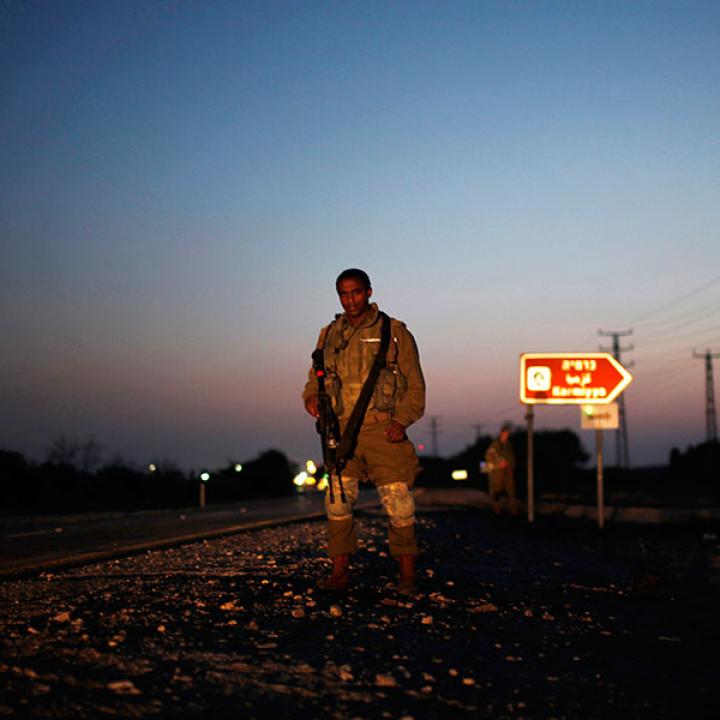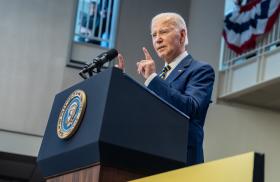
- Policy Analysis
- Articles & Op-Eds
Why Israel Should Declare a Unilateral Cease-Fire in Gaza
Also published in Foreign Affairs

Part of a series: Risks and Opportunities in the Post-April 13 Middle East
or see Part 1: The Palestinian Arena in the Shadow of the Iran-Israel Crisis
Doing so could turn the tables on Hamas and Iran while simultaneously advancing normalization with Saudi Arabia and other regional governments.
Iran’s decision to launch a direct, state-on-state attack against Israel on April 13 increased the risk of overt conventional conflict in the Middle East. This attack was significant in scope, scale, and complexity, employing hundreds of one-way attack drones, cruise missiles, and ballistic missiles. Equally significant was the U.S.-organized effort to defeat Iran’s attack, working with Israel as well as European and Arab allies to integrate capabilities and defend the region’s airspace. Although not publicly claimed, the April 19 Israeli response targeted air defenses protecting Iran’s nuclear program deep inside the country, without damage to civilian infrastructure or civilian casualties. And while the April 2024 escalation cycle appears closed, the region has now crossed the threshold for state-on-state attacks, with Israel and Iran both displaying potent capabilities and resolve.
The following article is part of a new series that aims to shed light on the opportunities and risks of the post-April 13 strategic environment.
Israel has seemingly recognized that the best way to deal with the threat Iran and its proxies pose is to work with a coalition. Until recently, the idea that Americans, Europeans, and Arabs would come together to help intercept drones and cruise missiles Iran launched against Israel would have seemed like a fantasy—and, to Israel, undesirable. Today, however, the cost of taking on all these fronts by itself is simply becoming too high. This suggests that a window has opened for the creation of a regional coalition pursuing a common strategy to counter Iran and its proxies. A U.S.-brokered normalization deal between Israel and Saudi Arabia would do a great deal to cement this emerging coalition, but the Biden administration believes that the fighting in Gaza must be paused before such negotiations can proceed. A unilateral cease-fire of four to six weeks would offer Israel many strategic benefits...






